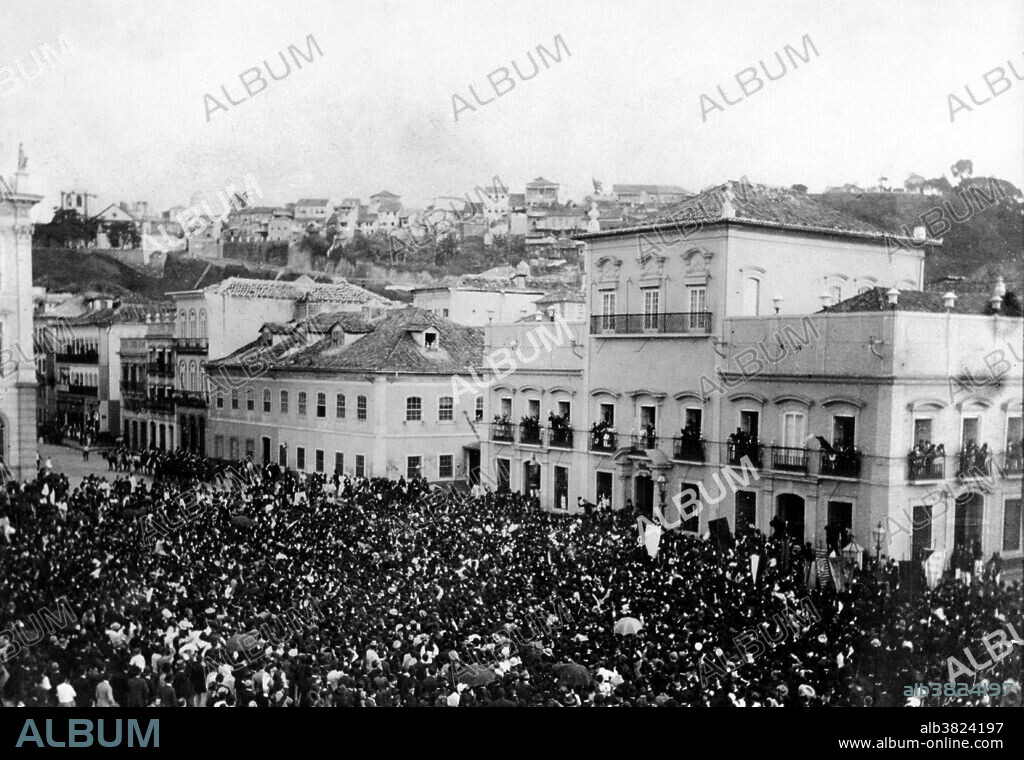alb3824197
Abolition of Slavery by Princess Isabel, Brazil, 1888

|
Ajouter à une autre Lightbox |
|
Ajouter à une autre Lightbox |



Avez-vous déjà un compte? S'identifier
Vous n'avez pas de compte ? S'inscrire
Acheter cette image

Titre:
Abolition of Slavery by Princess Isabel, Brazil, 1888
Légende:
Voir la traduction automatique
Abolition of slavery by Isabel, Princess Imperial of Brazil, in 1888. After the deaths of her two brothers in infancy, Isabel (1846-1921) was recognized as her father's heiress presumptive. During her father's absences abroad, Isabel acted as regent. In her third and final regency, she actively promoted and ultimately signed a law, named Lei Ãurea or the Golden Law, emancipating all slaves in Brazil. Even though the action was broadly popular, there was strong opposition to her succession to the throne. Her gender, strong Catholic faith and marriage to a foreigner were seen as points against her, and the emancipation of the slaves generated dislike among powerful planters. In 1889, her family was deposed in a military coup, and she spent the last 30 years of her life in exile in France. Photograph by Marc Ferrez (1843-1923).
Crédit:
Album / Science Source / Getty Research Institute
Autorisations:
Modèle: Non - Propriété: Non
Questions sur les droits?
Questions sur les droits?
Taille de l'image:
4734 x 3269 px | 44.3 MB
Taille d'impression:
40.1 x 27.7 cm | 15.8 x 10.9 in (300 dpi)
Mots clés:
 Pinterest
Pinterest Twitter
Twitter Facebook
Facebook Copier le lien
Copier le lien Email
Email
